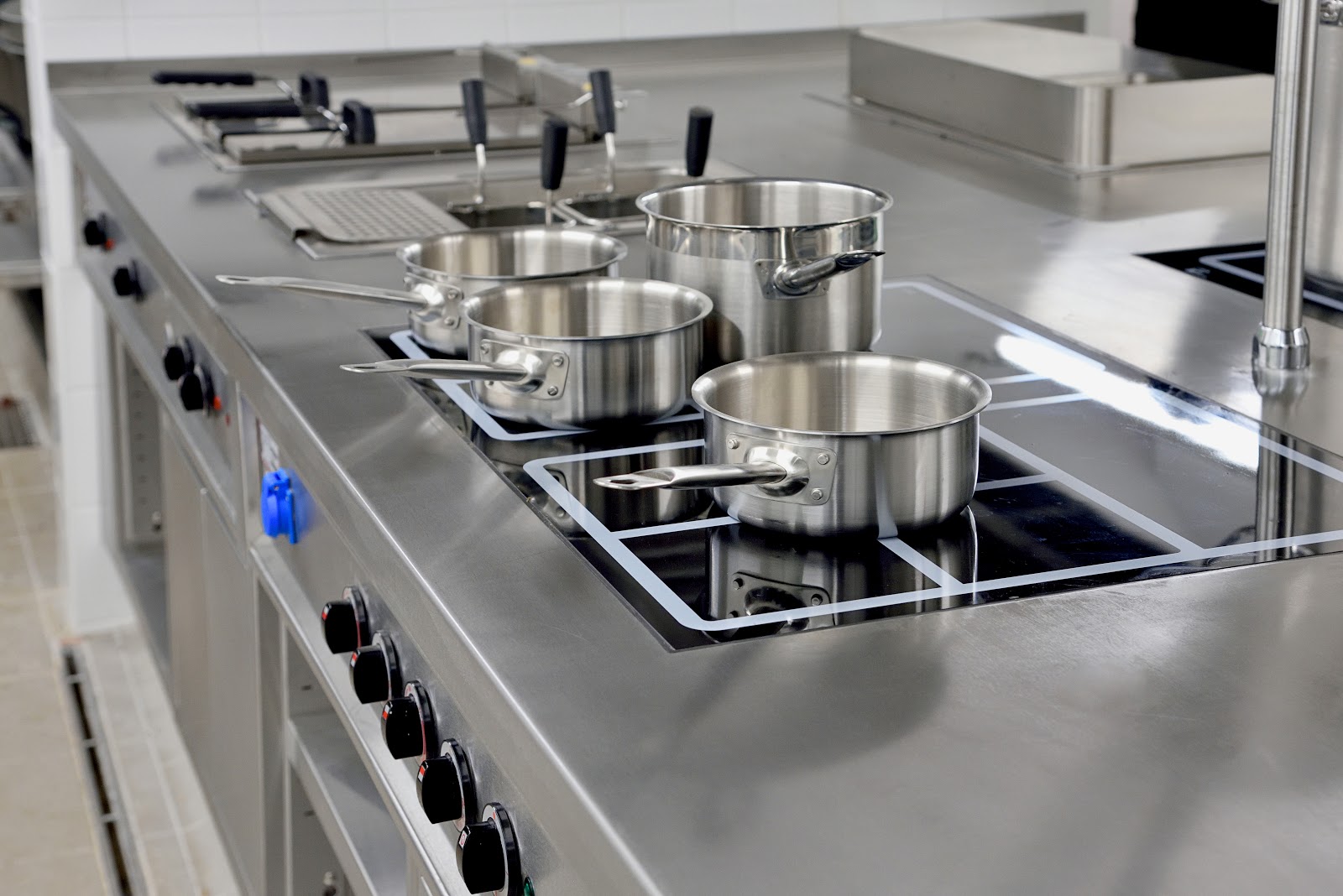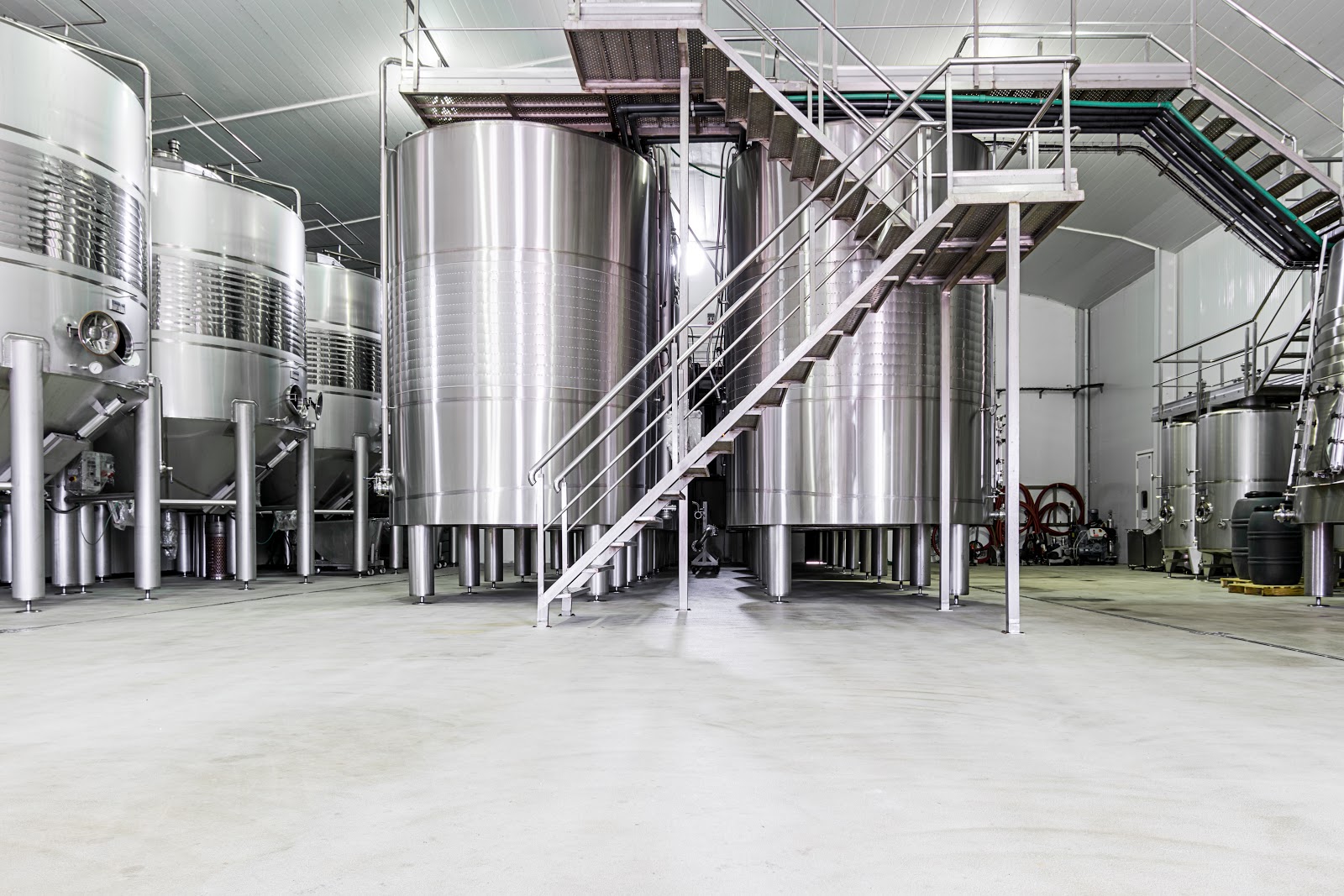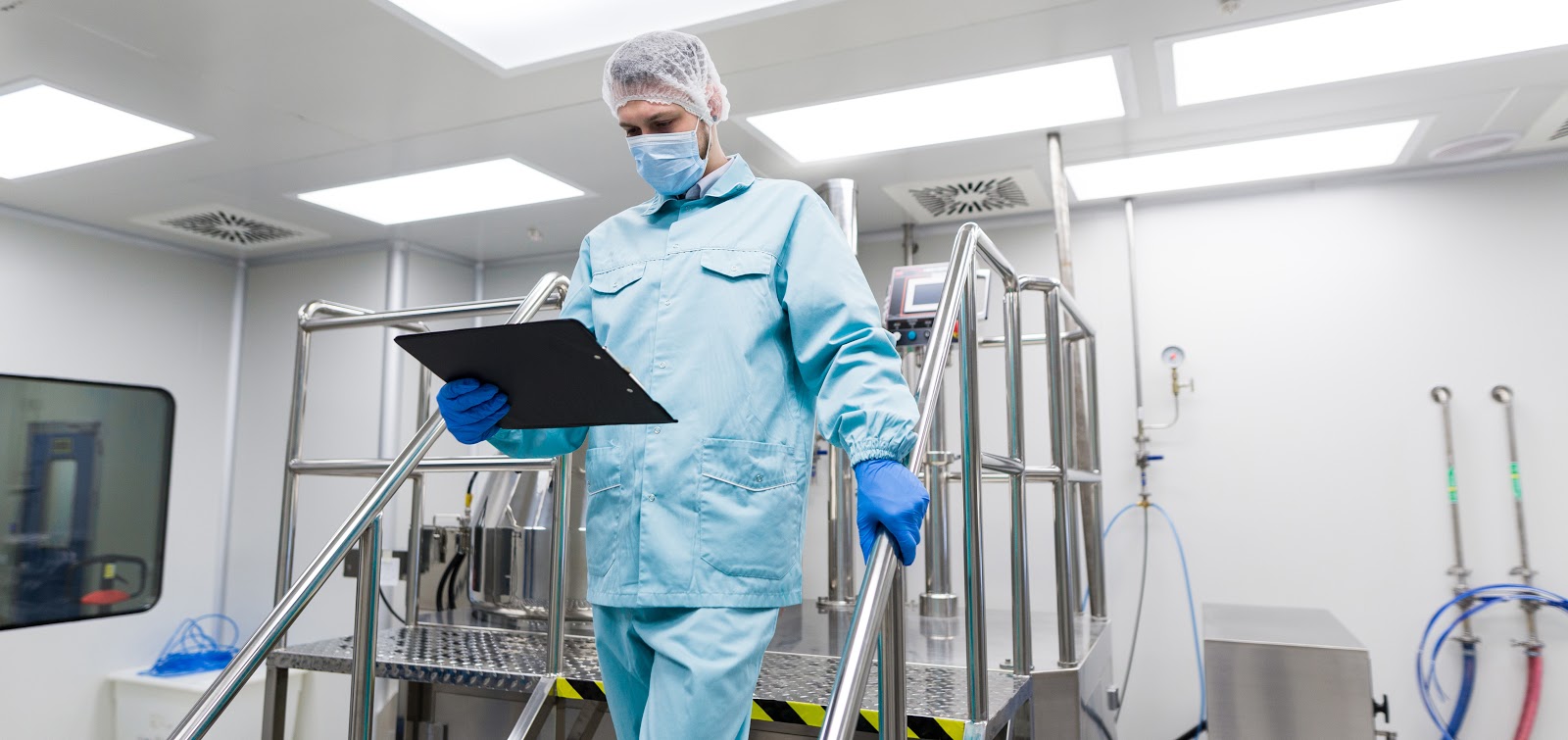Quality Stainless Steel Fabrication for Food Production


Due to its unique properties, stainless steel is at the top of every list of food-safe metals used for food processing. The durability and easy cleanability of stainless steel surfaces and applications play major roles when it comes to food safety. As a food-grade equipment manufacturer, Donewright’s stainless steel fabrication helps ensure that your business meets the Australian standards for food premises and production equipment.
In today’s post, we’ll take a look at what stainless steel is, why it is so commonly used in the food production industry, and how you can protect and maintain your stainless steel surfaces and equipment. Let’s dive right in!
What makes stainless steel, stainless steel?
Stainless steel is a term used to describe corrosion resistant alloy steels with a minimum of 10.5 per cent chromium. It is made by melting together raw chromium, nickel, iron, silicon, molybdenum, and other metals. This creates a powerful material that is rust-resistant, durable and infinitely recyclable.
A passive oxide layer makes it resistant to corrosion and results in a shiny surface that is, unlike regular steel, near impossible to tarnish – hence the name “stainless” steel. Today, stainless steel is commonly used in kitchen appliances and the food production industry, including in cookware, dishware and utensils, as well as in surfaces, ceilings and walls.
Why is stainless steel perfect for food production?
Stainless steel is the superior choice for food production surfaces and equipment because it is resistant to temperatures up to 425 degrees Celsius before being ill-affected, which would melt, warp or break most plastics and other metals. It also maintains high strength at low thermal temperatures, even below cryogenic points. That means it’s perfect for use in industrial kitchens and in the food processing industry, where temperatures rarely exceed those marks.
Stainless steel is also able to resist corrosion caused by acids contained in meats, milk, fruits and vegetables, which makes it more durable. This property in combination with its resistance to chloride, make it easy to sanitise – a fact that is of utter importance in the food production industry. Stainless steel also does not affect the colour, taste or smell of the foods and beverages. Then again, stainless steel is reusable and 100 per cent recyclable, which makes it a very valuable material.

Types of stainless steel used in the food industry
Not all stainless steel is created equal. Depending on the levels of alloy ingredients we differentiate between two types of stainless steel in the food-grade stainless steel fabrication: 304 and 316 stainless steel.
- 304 stainless steel food grade metal
304-grade stainless steel contains up to 24 per cent chromium and 35 per cent nickel. It is the most commonly used material in kitchen appliances and food production environments because it offers great corrosion resistance at affordable prices. It is easy to sanitise as it withstands corrosion from mild chemicals and acids. But 304 stainless steel has a weakness: Powerful corrosives such as chloride and salt can damage stainless steel appliances and surfaces. If your business uses these types of chemicals, you might be better off investing in slightly more expensive 316 stainless steel.
- 316 food-grade stainless steel
316 stainless steel has very similar physical and mechanical properties to 304 but contains higher levels of molybdenum, which increases the steel’s ability to resist highly corrosive chemicals. This makes it suitable for most industrial applications that use strong chemicals or in coastal regions. 316 stainless steel might be a little more expensive than 304, but you’re likely to get more years of use out of these appliances.
Specialist equipment manufactured with stainless steel
Where are 304 and 316 stainless steel most commonly applied?
Applications for 304 Stainless Steel |
Applications for 316 Stainless Steel |
|
|
|
|
|
|
|
|
|
|
|
|
|
|
|
|

How to protect stainless steel
To ensure the longevity of stainless steel applications and appliances, proper care and maintenance are crucial. Corrosion is most often caused when the passive oxide layer is broken down with scrapes, scratches and chlorides. To prevent this, take note of the following cleaning methods!
Industrial cleaning should only involve:
- Steam and pressure cleaning
- Alkaline, alkaline chlorinated or non-chloride cleaners
- Non-abrasive tools, such as soft cloths and plastic scouring pads
Avoid:
- The use of hydrochloric acid (muriatic acid), hypochlorites (bleach) and other chemicals (nitric acid, iodine, ammonium) on stainless steel
- Scrubbing with abrasive scrubbers and materials
What about the use of aluminium in food production?
Aluminium is a commonly used food-grade metal as well. One of the most abundant metallic elements found on Earth, it occurs naturally in soil, water and air. That makes it a very cheap material to use. It also heats and cools very quickly, which is why it’s commonly used in cook and bakeware. However, the application of aluminium in food processing also presents a range of issues. Aluminium reacts to carbon and easily rusts and corrodes. Plus, it is a soft metal that easily scratches and breaks when too much force is applied.
Donewright’s food production services
At Donewright Stainless, we specialise in stainless steel food production fabrication, installation and maintenance. Our experts are equipped to create tailormade stainless steel solutions for the food, beverage and dairy industry. Our high-quality stainless steel fabrications are created to exceptionally high Australian standards. We offer efficient, expert workmanship across all projects, whether you require simple guide rails or are looking to transfer to a full conveyor process system.
Donewright Stainless provides food-grade stainless steel fabrications for the leading Australian food and beverage manufacturers, including Sunny Queen Farms, Tru Blue and Goodman Fielder. With our experience and expertise, the team at Donewright has you covered – no matter the type or size of your next project. For more information, to request a quote or ask a question, do not hesitate to reach out to us!

